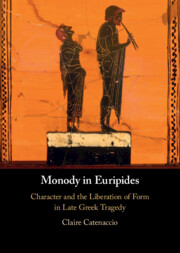This paper raises objections to the constitution of these lines in the OCT. The lines are gnomic but they generalize based on an actual sequence of events just described and should contain an allusion to the offence that will cause the Greeks to perish, the outrage against Athena's temple. This, it is argued, stood in a lacuna best marked after 95. The article has three theses: (1) sacking ‘cities, temples, and tombs’ is implausible because the latter two are parts of the first; (2) plundering tombs refers to nothing in the play, nor was this thought of as an offence against the gods; (3) 96–7 do not refer to the offence that causes the fool's death but are a description of his success, the destruction of the hated enemy population. That success stands in ironic contrast with his subsequent death.
